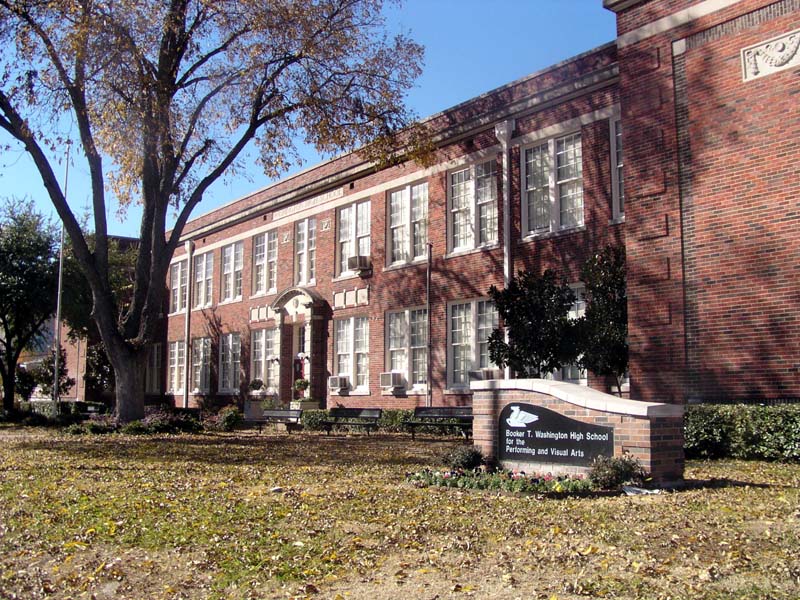In early 2019, a scandal involving wealthy parents using illicit methods to help their children attend highly rated colleges and universities became front-page news across the country. For those who find the misfortune of the rich and famous fascinating, there was plenty to ponder. For readers looking for evidence of a widening class divide in American society, there was also plenty of evidence to suggest that something was deeply wrong.
A new article by Lizzy Francis at Fatherly makes a convincing case that an even more unsettling scandal has had a greater impact on education and class — beginning with magnet high schools like Dallas’s Booker T. Washington High School for the Performing and Visual Arts. Francis is an alumnus of this high school, and writes about its policy of prioritizing in-district students.
Alumni of Booker T. Washington High School have traditionally done well when they’ve gone on to higher education. “In 2019, the 250 seniors making up Booker T. ‘s graduating class received $62 million in scholarships, roughly $250,000 per student, to elite colleges across the country,” Francis writes.
It’s an impressive number — perhaps so impressive that a number of parents outside of the district engaged in unethical practices to get their children accepted there, which made it more difficult for students within the district to attend. The Lakewood/East Dallas Advocate reported on this in May 2019, noting that “Advocate research shows neither campus nor district officials make much of an effort to verify that applicants live where they say they do. And once a kid cheats his way into a magnet school, DISD generally doesn’t review his residency again.”
Francis’s article tallies up the financial cost of this, and it’s unsettling.
Discounting the value of an exceptional high school experience, math suggests that out-of-district parents conspired to loot an eight-figure sum from a community resource, pulling millions and millions out of a lower-income community for the monthly installments of the $1,200 needed to rent an empty apartment.
In her article, she also explores a similar scandal outside of Dallas, and ponders whether these practices are covered less because they seem less sensational than the admissions scandal. That may well be, but as Francis succinctly writes, “theft is theft.” And the people who are having a valuable experience stolen from them are the ones who might benefit from it the most.
Subscribe here for our free daily newsletter.
Thanks for reading InsideHook. Sign up for our daily newsletter and be in the know.


















